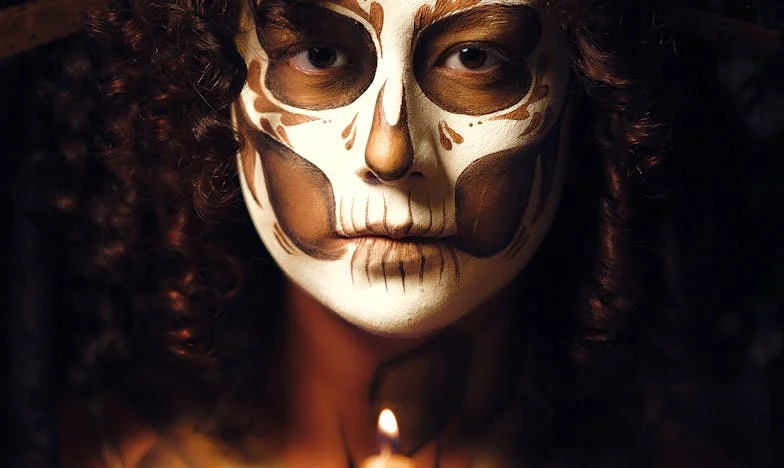The Silence Between Us: A Son Returns Home
“You shouldn’t be here.” My mother’s voice cracked as she stood on the porch, keys jangling in her trembling hand. The screen door slammed behind her, echoing down the quiet street of Maple Drive. I’d barely had time to take in the peeling paint, the overgrown grass, the mailbox with our family name—”Anderson”—still faded on its side. Sixteen years had passed since I’d last walked these steps, and I hadn’t called, hadn’t written, hadn’t given her or Bethany, my sister, a single word of warning. I just bought a Greyhound ticket from Chicago, gripping it so tightly in my fist that the paper tore.
I could see my reflection in her eyes: older, thinner, my jaw clenched with old anger and new regret. “Mom,” I said, voice so soft I wasn’t sure she’d even heard me. “I had nowhere else to go.”
“After all this time, you think you can just show up?” She didn’t move, arms crossed over her faded flannel. The August heat pressed against us, thick and unrelenting, and for a moment I wished the storm clouds gathering over the cornfields would break—just to have something else to look at.
Bethany was the first to break the silence, coming up the driveway with her twins in tow. She stopped dead, mouth open, grocery bags swinging from her arms. “Tad? Are you—are you really here?”
I nodded, but the words stuck in my throat. I remembered us as kids, racing bikes down the gravel alleys, sharing secrets under the old oak tree behind the church. I remembered the last time I saw her, the night I left after the fight with Dad—when voices had risen, fists had slammed the table, when I’d sworn to never come back.
“What do you want?” Mom’s question cut through my thoughts. “Why now?”
I swallowed. “Dad’s gone, isn’t he?”
Bethany nodded, her eyes shiny. “Two years now. Cancer.”
I felt the punch of guilt, the way it knocked the air from my lungs. I hadn’t even known.
We stood there for what felt like hours, until the twins started tugging at Bethany’s shirt, eyes wide at the stranger their mother seemed afraid to approach. She led them inside, shooting glances back at me. Mom hesitated, then finally opened the door. “You can sleep in your old room. For tonight.” She didn’t wait for me to follow.
Inside, nothing had changed and everything had. My trophies from Little League still lined the shelves, but the bed sheets smelled of mothballs, and the air felt stale with old memories. I sat on the bed, head in my hands, and wondered how you could feel so lonely in the house where you grew up.
That night, I heard them whispering in the kitchen—the clink of cups, the urgent hush of voices. I pressed my ear to the door and caught fragments: “…can’t just forgive him…” “He was just a kid…” “He left us, Beth. He left.”
I wanted to go in, to beg for understanding, to finally explain. But I stayed silent, afraid that my words would only make things worse.
The next morning, the town felt even smaller than I remembered. At the grocery store, Mrs. Parker, my old math teacher, gasped when she saw me. “Tad Anderson? My Lord, your mother said you’d left for good!”
I tried to smile, but the weight of everyone’s eyes felt suffocating. Old friends avoided me; some whispered as I passed. It was as if my absence had become a wound the whole town had nursed, and my return threatened to rip it open again.
That afternoon, Bethany found me sitting on the back porch, staring at the cornfields. She sat beside me, folding her hands in her lap. “Why did you leave and never call?” she asked, her voice barely above a whisper.
I took a deep breath, feeling the old shame burn in my chest. “The night I left, Dad said things… things I couldn’t forgive. He told me I’d never amount to anything, that I was a disappointment. I couldn’t breathe here anymore. I thought leaving would make it better. But it didn’t. It just made me empty.”
Bethany stared at her hands. “He was sick, even then. Angry all the time. He took it out on you, but you weren’t the problem.”
I blinked back tears. “I missed his funeral. I missed everything.”
She put her hand on mine. “You missed a lot, yeah. But you’re here now. Doesn’t that mean something?”
Later that evening, I found Mom in the garden, pulling weeds with the same stubbornness I remembered from childhood. I walked over, kneeling beside her. “I’m sorry,” I said, voice breaking. “I was scared. I didn’t know how to come back.”
She kept her eyes on the earth. “You broke my heart, Tad. Sixteen years, not a word. I hated you for leaving. But I hated myself more, for letting you go.”
I reached for her hand, dirt under her nails, skin rough. “Can we start over?”
She finally looked at me, tears carving lines down her face. “I don’t know. But I want to try.”
That night, as the cicadas sang and the town settled into its quiet darkness, I stood by my window and wondered if forgiveness was possible, or if the silence between us would always be louder than any words we spoke. I wondered how many families, in towns just like this one, were nursing old wounds and waiting for someone to come home.
Will we ever really heal, or are we always just pretending to start over? What does it really take to earn forgiveness—for others, and for ourselves?
